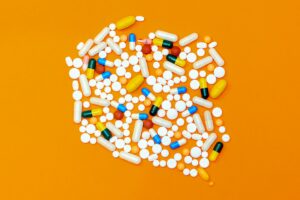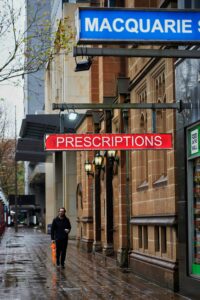HR 3546 IH: Affordable Prescription Drugs Act – Direct Link: https://www.govinfo.gov/app/details/BILLS-119hr3546ih
The Affordable Prescription Drugs Act aims to increase access to affordable prescription drugs, reduce healthcare costs, and promote competition in the pharmaceutical market.
Introduction
The bill introduces several key provisions to achieve these goals, including a new framework for reviewing generic drug applications, increased transparency in pharmaceutical company marketing practices, and expanded use of open-source technology in medicine development.
Key Provisions
- Average Manufacturer Price**: A new definition for average manufacturer price to ensure fair competition among pharmaceutical companies.
- Biosimilar Biological Products**: Expanded regulatory framework for biosimilar biological products, allowing for more competition in the market.
- Brand Name Drugs**: Clarification of brand name drugs and their exclusivity periods to promote transparency and fairness.
Biosimilar Biological Products
The bill defines biosimilar biological products as those licensed pursuant to an application under section 351(k) of the Public Health Service Act (42 U.S.C. 262(k)).
“Biosimilar biological product” means a biologic product licensed pursuant to an application under section 351(k) of the Public Health Service Act (42 U.S.C. 262(k)).
Brand Name Drugs
The bill clarifies brand name drugs and their exclusivity periods, promoting transparency and fairness in the market.
“Brand name drug” means a drug—
- approved pursuant to an application under section (b)(1) of the Federal Food, Drug, and Cosmetic Act (21 U.S.C. 355(b)(1)) or that is licensed under section 351(a) of the Public Health Service Act (42 U.S.C. 262(a));
- subject to section 503(b)(1) of the Federal Food, Drug, and Cosmetic Act (21 U.S.C. 353(b)(1)); and
- that is claimed in a patent, or a use of which is claimed in a patent.
Government-Granted Exclusivity
The bill defines government-granted exclusivity as prohibitions on the submission or approval of drug applications granted under certain provisions of law, including clauses (ii) through (v) of section 505(c)(3)(E) of the Federal Food, Drug, and Cosmetic Act (21 U.S.C. 355(c)(3)(E)).
“Government-granted exclusivity” means prohibitions on the submission or approval of drug applications granted under any of the following:
- Clauses (ii) through (v) of section 505(c)(3)(E) of the Federal Food, Drug, and Cosmetic Act (21 U.S.C. 355(c)(3)(E)).
- Section 505(j)(5)(B)(iv) of the Federal Food, Drug, and Cosmetic Act (21 U.S.C. 355(j)(5)(B)(iv)) or clause (ii), (iii), or (iv) of section 505(j)(5)(F) of such Act.
- Section 505A of the Federal Food, Drug, and Cosmetic Act (21 U.S.C. 355a).
- Section 505E of the Federal Food, Drug, and Cosmetic Act (21 U.S.C. 355f).
- Section 527 of the Federal Food, Drug, and Cosmetic Act (21 U.S.C. 360cc).
- Section 351(k)(7) of the Public Health Service Act (42 U.S.C. 262(k)(7)).




